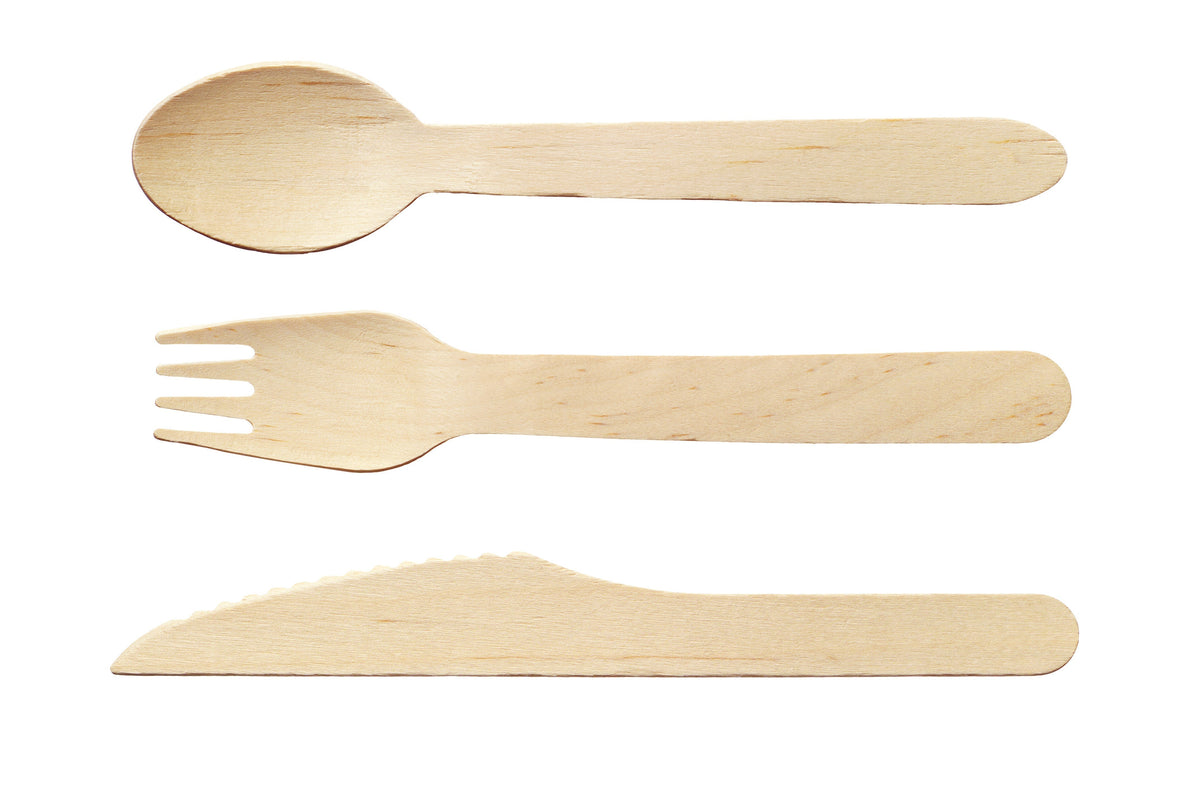Sustainable Dining: The Rise of Wooden Cutlery in Eco-Friendly Restaurants
February 04, 2025

The hospitality industry has undergone a transformative shift towards sustainability, responding proactively to the challenges posed by climate change and environmental degradation. This evolution is particularly evident in the growing adoption of wooden cutlery in eco-friendly restaurants, a significant departure from the traditional reliance on plastic utensils. As environmental consciousness heightens, this trend is not just a nod to sustainability but a robust answer to the urgent need for eco-friendly dining solutions.
Wooden Cutlery: A Sustainable Choice
Traditionally, plastic cutlery has been a staple in food service due to its low cost and convenience. However, its environmental toll is severe, plastic is non-biodegradable, often ending up in landfills and oceans, where it poses a grave threat to wildlife and ecosystems. In contrast, wooden cutlery sets, made from renewable resources like birch or bamboo cutlery, offers a sustainable alternative. Not only is a bamboo cutlery or wooden cutlery sets biodegradable, but it also possesses a natural aesthetic that enhances the dining experience, resonating with the ethos of organic and locally sourced food.
Consumer Preferences and Market Trends
The pivot towards a cutlery range is largely consumer-driven. Today, a significant portion of diners prefer to eat in establishments that demonstrate environmental responsibility. This shift in consumer preferences has spurred a corresponding increase in the market availability of wooden cutlery or bamboo cutlery, making it a more accessible and economical option for many restaurants. The enhanced market presence of these wooden cutlery sets products is a testament to their growing appeal and the potential for widespread adoption in the industry.
Overcoming Challenges
Adopting a cutlery range does come with its challenges, notably the higher initial costs compared to plastic. However, the long-term benefits of a wooden cutlery pack, such as reduced environmental impact and enhanced customer satisfaction, far outweigh these initial investments. Moreover, impending regulations on single-use plastics are pushing restaurants towards sustainable alternatives, with wood cutlery standing out as an excellent choice.
Ensuring Sustainability in Production
To truly capitalise on the benefits of a wood cutlery pack, it is crucial for restaurants to source these products from sustainably managed forests. Furthermore, the production processes must be environmentally conscious, avoiding harmful chemicals and minimising waste. By adhering to these principles, restaurants can ensure that their move towards wooden cutlery is genuinely beneficial for the environment.
Educating and Engaging Customers
Transitioning to wooden cutlery or a wooden cutlery pack is not just a behind-the-scenes change, it’s a public commitment to sustainability that can educate and inspire customers. Restaurants have the opportunity to engage diners by explaining the environmental benefits of wooden cutlery. Such communications can help cultivate a dining culture that values sustainability, encouraging customers to make eco-friendly choices in their everyday lives.
Sustainability is a Must for Businesses
For businesses, adopting sustainable practices such as using a wooden cutlery pack is not just an environmental decision but a strategic one. Consumers today are more informed and conscious about the environmental impact of their choices, including where they choose to dine. A commitment to sustainability can attract these discerning customers who are likely to remain loyal to brands that reflect their values. Also, sustainable practices can lead to cost savings over time through efficient use of resources and reduced waste.
Additionally, sustainability can enhance a business's brand image and competitive edge. Companies that are seen as responsible are more likely to garner positive media attention, attract quality employees, and engage with customers on a deeper level. In an increasingly crowded market, a strong commitment to sustainable practices can differentiate a business from its competitors, turning environmental responsibility into a unique selling proposition.
Regulatory environments are tightening, with governments around the world setting stringent environmental standards and policies. Early adoption of sustainable practices positions businesses to comply with these regulations more smoothly and avoid potential fines or sanctions. This proactive approach not only minimises legal and financial risks but also demonstrates leadership in corporate responsibility.
Sustainability is not just a trend but a business imperative that can drive long-term success. By embedding eco-friendly practices into their operations, companies contribute to the health of the planet but also build a sustainable brand that resonates with today's ethical consumer. This alignment of environmental goals with business objectives is the cornerstone of a forward-thinking, resilient business strategy.
Invest in Wooden Cutlery Sets From Custom Supplies
The adoption of the wooden cutlery pack in the hospitality industry signifies more than just a shift in materials, it represents a deeper commitment to environmental stewardship. As awareness of ecological issues continues to grow, more restaurants are expected to join this green movement, thereby amplifying the industry’s overall impact on reducing pollution and promoting sustainability.
At Custom Supplies, we champion these eco-friendly initiatives by offering high-quality a wooden cutlery pack that aligns with the sustainability goals of our clients. By partnering with us, restaurants are not enhancing their customer experience alone, they're participating in a global movement towards a more sustainable and responsible future.
For more information on how we can support your restaurant in adopting sustainable practices like our wooden cutlery sets, please visit our website or contact our customer service team on info@customsupplies.com. Together, we can make a significant impact, one meal at a time. Let's work together to pave the way for a greener, more sustainable future in the hospitality industry.


